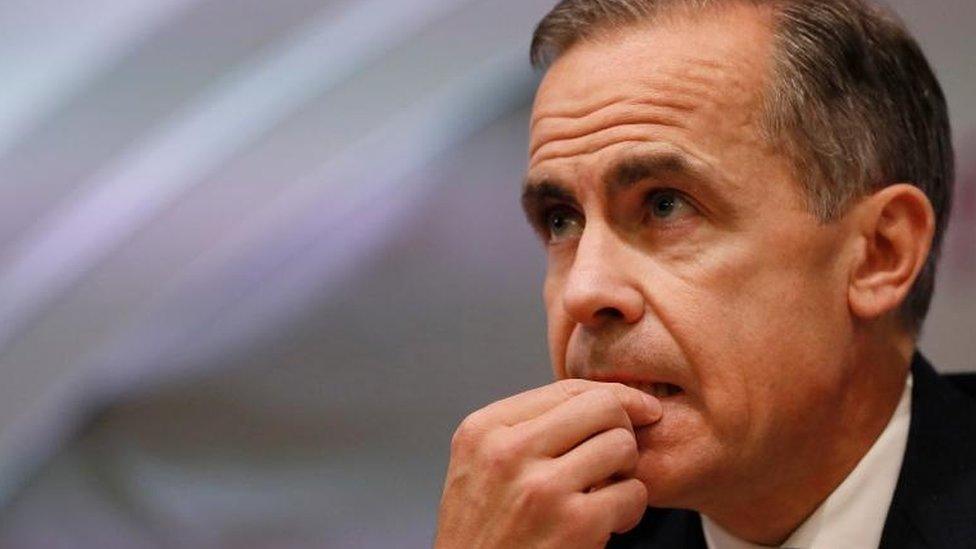Mark Carney faces questions over Hogg’s resignation
- Published
- comments

Mr Carney believed that a verbal warning for Ms Hogg was sufficient
It is vanishingly rare for the Treasury Select Committee to not, even if sometimes reluctantly, back an appointment by the Bank of England of a deputy governor and a new member of the Monetary Policy Committee (MPC).
In 2000, it did not recommend the appointment of Christopher Allsopp as an external member of the MPC after what they suggested was a poor performance in front of the committee, but the then Chancellor, Gordon Brown, stood by him.
So, the committee's action against Charlotte Hogg is certainly significant.
And its significance goes well beyond the future of Ms Hogg.
Mark Carney, the governor, backed her until one minute to midnight.
Which, after the evidence laid out by the committee today, external, is likely to be questioned by MPs when Mr Carney next appears before them.
Mr Carney believed that a verbal warning was sufficient and rejected Ms Hogg's offer to resign last week.
His judgement was that it was an oversight which had been rectified, and that Ms Hogg's contribution to the Bank - where she has worked since 2013 - far outweighed this controversy.
'Serious' breach
Andrew Tyrie's committee did not agree.
That is for four distinct reasons.
Firstly, that the "oversight" concerning Ms Hogg's brother's senior job at Barclays - regulated by the Bank of England - lasted for four years without any of the Bank's internal processes picking up the issue.
Second, that Ms Hogg was the person who drafted the Bank's own internal rule book which she subsequently breached.
She didn't, the Treasury Select Committee said, "lead by example".
Third, the committee said that Ms Hogg, and by extension, Mr Carney, failed to appreciate the "seriousness" of that breach.
And then suggested that future conflicts "would not arise".
Which, as the committee points out, depends - on what happens both at the Bank and at Barclays.
Red card
The governor has now reluctantly acted, saying that the Bank will put in place new procedures; the most significant of which is moving oversight of the Bank's code of conduct under Sam Woods, the deputy governor for prudential regulation.
That now means that the person who drew up the rules, the chief operating officer (until this morning Ms Hogg), is no longer responsible for their enforcement or the way they are reported to the Bank's own Audit and Risk Committee.
Many will say the handling of the controversy over Ms Hogg has been misstep by the governor, who always needs to ensure that the Bank's adherence to its own rules is punctilious.
Ms Hogg had been widely praised as a reforming influence at the Bank, introducing new levels of transparency and driving through a reform programme that has cleared away some of the Bank's dustier attitudes.
She certainly had firm support from the Court of the Bank, its governing body.
But, in the hyper-sensitive world of bank regulation, the Treasury Select Committee has made it clear that any breach is a red card issue.
There are no cautions beforehand.